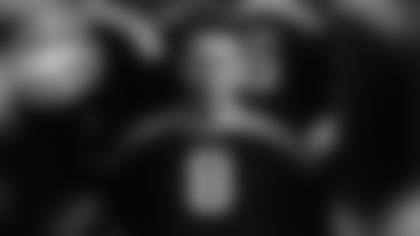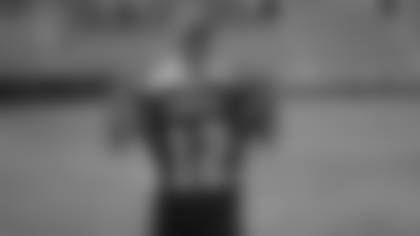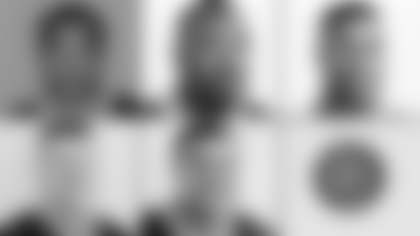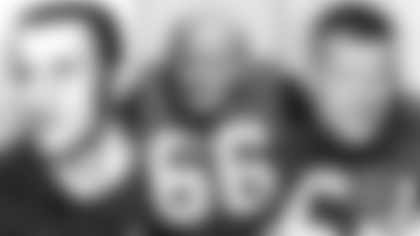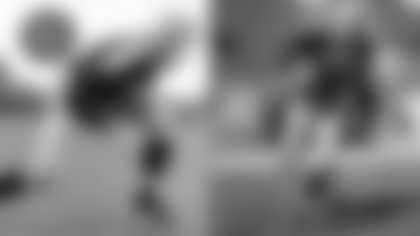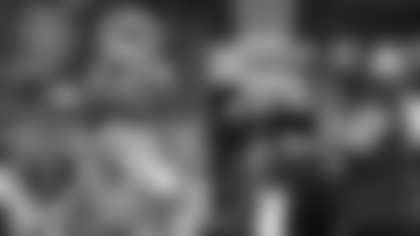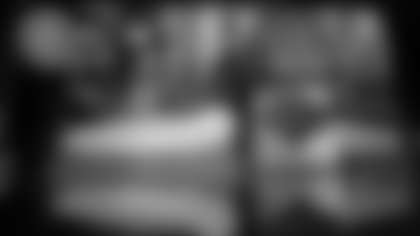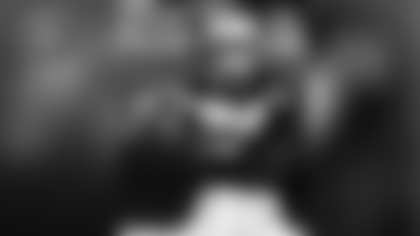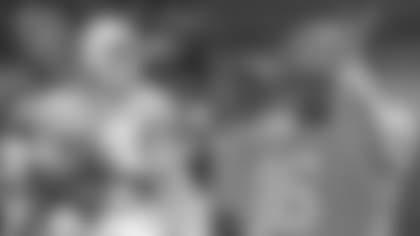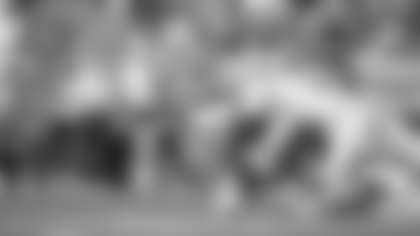Cliff Christl started gathering oral histories with former Packers and others associated with the team in 1996 and will continue to gather them as Packers historian. Excerpts from those interviews will be periodically posted at www.packers.com
Bob Kahler, a 6-foot-3, 201-pound back, played for the Packers from 1942 to 1944, including eight games in his final season on what was Curly Lambeau's last NFL championship team. While Kahler wasn't selected in the 1941 NFL Draft, he signed with the Packers as a free agent after Lambeau scouted him in the Rose Bowl. Cut five days before the opener, Kahler spent the season with the Packers' farm club, the Long Island Indians. Coached by former Packers great Verne Lewellen, Long Island won the American Association championship with Kahler playing a leading role. Kahler appeared in 19 games over his three seasons with the Packers, playing mostly right halfback and quarterback, or what was a blocking back at the time, in Lambeau's Notre Dame Box offense. When his playing days were over, Kahler went into coaching and spent six seasons at Northern Illinois as backfield coach and one as head coach. Bob's brother Royal Kahler was a teammate with the Packers in 1942.
On Curly Lambeau: "He treated me fairly, but I'll tell you it was Curly's way. He was a very demanding guy. A good coach. He was decent with the players, but he demanded 100%. That's why he was successful. He was a stickler for fielding punts. At the same time, he didn't have a lot of rules."
On whether Lambeau had a good football mind: "Definitely. That's why he lasted as long as he did."
On whether the players respected or liked Lambeau: "He was always fair with them."
A favorite Lambeau story: "I remember we were playing the Bears and they were on top of us at halftime. We had metal cleats and they got a bur on them. Ted Fritsch got a cut on his buttocks and the trainer wanted to send him to the hospital to stitch him up. Lambeau said, 'Hospital, hell. Stitch him up with Coover.' That was a fast glue type thing like the fighters used."
On Lambeau's personality: "On the sidelines, you could hear him. One fall he went up to the press box and they chased him out of there. He was too vocal. I think it was a regular-season game. He was flamboyant and had a hot car. That's the first time I saw a Lincoln Zephyr. And he dressed well. He was a first-class guy."
On whether the players knew he was a ladies man: "I think they knew about it. It was pretty much the talk there in Green Bay. Players would see him on the road. I think the women were in other cities."
On Red Smith, Lambeau's line coach: "When we played in New York, we stayed out at the Westchester Country Club and we had to dress in the pool area. So we had to put our shoes and some of our clothes around the pool. When we came back in from practice, some of the players, Charley Brock and some of the linemen, had tied his shoes together and they were floating out in the pool. It was always real fun times with him. Smith was very popular with the players."
On living in Green Bay in the 1940s: "I lived in an apartment complex on the East Side with (Tony) Canadeo and (Tiny) Croft. I think it was over by the hospitals."
On the fans in Green Bay: "The first year we were in an apartment downtown. We had a knock on the door and some gentleman came there and gave us a big pork loin."
On his first impressions of Green Bay: "My biggest shock was in the dressing room. I come in there and they were all smoking. I was a non-smoker and it really threw me. Don Hutson smoked a pipe. It was before practice, during the week. Some guys smoked cigars, some guys smoked cigarettes."
On the 1944 NFL Championship Game, played against the New York Giants at the Polo Grounds in New York and won by the Packers, 14-7: "It was 17 degrees and half the field was frozen. Don Hutson served more or less as a decoy and Ted Fritsch scored both touchdowns. They ganged up on (Hutson). The tackle played over him, then the fullback would pick him up and then there would be a defensive back. I mean hold, knock him down. Joe Laws did the most damage with his running: traps up the middle."
More on Laws, who intercepted three passes and rushed for 74 yards in 13 carries: "He wasn't very large, but he had good foot movement."
On Fritsch: "He was the clown. Always having a good time. A good sense of humor."
On Irv Comp, the Packers' left halfback: "I think he was a better passer than runner. Joe Laws carried the ball most of the time in the championship. I think (Laws) called signals, too."
On Hutson: "He had a different type of speed. Quickness. Fast feet. He was a loner. He had a place in Green Bay, Don Hutson's Packer Playdium. I think it was financed by somebody out of Milwaukee and they were using his name. In the center of the bar area, they had this huge trophy he won for being the most valuable player."
On Tony Canadeo: "He was a shifty, hard runner. A hard-nosed player."
On blocking back and defensive end Larry Craig: "That guy was a superman. That guy played every minute of every game. He had good speed. A very aggressive guy. And handsome. He had a lot of girl friends."
On center Charley Brock: "He was a strong guy. On defense, the center and fullback played linebacker, the halfbacks were the cornerbacks and the quarterback was the safety. We played either a five- or six-man front."
On Buckets Goldenberg: "He was originally a fullback. Then he slowed up and Curly made a guard out of him."
On roommate Tiny Croft, an oversized 6-3, 287-pound tackle in those days: "He looked heavy, but his belly didn't hang over his belt like today's players. And he could move well. He was a very friendly guy. My youngest son Larry would go over to his apartment and Croft would be on the floor. Larry would crawl all over him."
On Bill Kuusisto, a 228-pound guard who played six years in Green Bay: "He was a pro wrestler. He had cauliflower ears. A good Swede."
On the train rides to and from games: "On the return trips, we'd often stop in Chicago on the way back, so we could go eat somewhere. Then we'd catch the late train to Green Bay. We slept on the train on long trips. Green Bay was always first class whatever they did."
On what the players did to pass time on the train rides: "Played cards. That was the big thing. There was always a limit. And Hutson and Buckets always played. They had a game they played and always kept track of the points. Other guys played poker."
On playing for the Long Island farm club: "Lambeau suggested I play out there. I played for Verne Lewellen. We played all the games at night. It wasn't the greatest of things, but at least I got a lot of experience."
On his speed: "I held the American indoor record in the 70-yard low hurdles in 6.8. I ran it in Chicago."
On his salary: "I think we got $35 a week in training camp. My salary was $3,000 and it seemed like a lot of money. The (game) tickets were $4.40 and minimum wage was 35 cents. When we won the championship, our cut was a little under $1,500. I think it was like $1,490. But it was the largest attendance up until that time and the biggest payoff."
On playing during World War II: "There were 28 on a team. It was the war years. The last year I was in Green Bay I worked for a government-sponsored company located along the Fox River. Then I was drafted into service in '45 and served with the Air Force super bombers. I never considered returning to the Packers after I got out of service."
Kahler died in 2013 at age 96. The excerpts here were taken from interviews conducted in 2000 and 2002.



